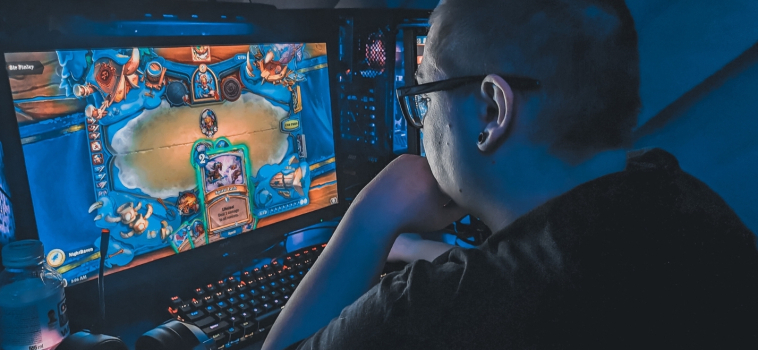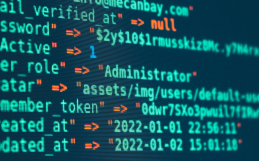Experiential Learning: Bridging Theory and Practice
High-Stakes Training: Enhanced Decision-Making Skills
Training pilots is often hailed as one of the best examples of experiential learning due to its rigorous emphasis on hands-on practice and real-time decision-making. In the cockpit, aspiring pilots engage in simulations that replicate the complexities of flying, allowing them to apply theoretical knowledge in a controlled yet challenging environment.
This immersive approach enhances technical skills and fosters critical thinking, teamwork, and effective communication – essential attributes for successful pilots. Moreover, the high-stakes nature of aviation training sets a benchmark for people skills development programs across various industries, showcasing the importance of collaboration and leadership under pressure. As organizations seek to cultivate effective communicators and problem-solvers, the pilot training model is an exemplary framework for designing impactful experiential learning initiatives.
In an era where traditional educational methods are challenged by rapid technological advancements and changing workforce demands, experiential learning has emerged as a powerful approach to education and professional development. This hands-on learning method emphasizes the importance of experience in learning, enabling individuals to acquire knowledge and skills through direct involvement.
Let’s explore experiential learning, its key benefits, and how it can transform education and professional development.
What is Experiential Learning?
Experiential learning is a pedagogical approach that encourages learners to engage in activities that allow them to apply theoretical concepts in real-world situations. Developed by educational theorist David Kolb, the experiential learning cycle consists of four stages: concrete experience, reflective observation, abstract conceptualization, and active experimentation. This cycle promotes a deeper understanding of the subject matter, as learners actively participate in their education rather than passively receiving information.
Experiential learning is essential for training decision-makers, as it immerses them in realistic scenarios where they must evaluate information, consider alternatives, and make choices under pressure.
This hands-on approach fosters a deeper understanding of the consequences of their decisions, allowing them to learn from both successes and failures in a safe environment.
In simulations and role-playing exercises, decision-makers can practice critical thinking and develop their intuition and vital skills in high-stakes situations. Additionally, experiential learning encourages collaboration and communication, as decision-makers often need to work with diverse teams to navigate complex challenges. Ultimately, this method equips leaders with the confidence and competence to make informed decisions that drive organizational success.
This is precisely why we have invested in developing FLIGBY, the ultimate leadership game. By simulating real-world scenarios, FLIGBY allows players to practice decision-making and interpersonal skills in a dynamic and engaging environment. Our commitment to experiential learning ensures that participants emerge as more effective leaders, ready to tackle the challenges of tomorrow.
Critical Benefits of Experiential Learning
Experiential learning offers many advantages that enhance personal and professional growth. It cultivates essential skills which are vital in today’s fast-paced world. Moreover, experiential learning encourages adaptability and resilience, preparing individuals to navigate complex situations confidently.
- Enhanced Retention and Understanding – One of the most significant advantages of experiential learning is that it improves information retention. Learners who participate in hands-on activities are more likely to remember and understand the consequences because they have connected it to their personal experiences. This engagement fosters a deeper comprehension of concepts, making learning more meaningful.
- Development of Critical Skills – Experiential learning cultivates essential skills such as problem-solving, critical thinking, and teamwork. Participants learn to navigate challenges, make decisions, and collaborate effectively with others, preparing them for real-world scenarios. These skills are increasingly important in today’s dynamic work environment, where adaptability and innovation are key to success.
- Increased Engagement and Motivation – Traditional learning methods can often lead to disengagement, as students may struggle to see the relevance of theoretical concepts. Experiential learning, on the other hand, actively involves learners and encourages them to explore, experiment, and take ownership of their education. This increased engagement can lead to higher motivation levels and a greater desire to learn.
- Real-World Application – By bridging the gap between theory and practice, experiential learning equips individuals with the knowledge and skills they need to thrive in their careers. Participants gain practical experience that is directly applicable to their jobs, allowing them to enter the workforce with confidence and competence. This hands-on approach ensures that they are better prepared to tackle the challenges they will face in their professional lives.
- Encouragement of Lifelong Learning – Experiential learning fosters a mindset of curiosity and exploration, encouraging individuals to become lifelong learners. As they engage in hands-on experiences, learners develop a habit of seeking new challenges and opportunities for growth, which is essential in a constantly evolving world.
Implementing Experiential Learning
Organizations and educational institutions can implement experiential learning in various ways, including internships, simulations, workshops, and project-based learning. By designing programs that prioritize active participation, they can create an environment where learners are encouraged to explore, reflect, and apply their knowledge.
Organizations are increasingly exploring new and innovative ways of experiential learning by implementing online simulations that provide realistic, interactive experiences for their teams. These digital platforms not only enhance engagement but also allow participants to practice decision-making and problem-solving in a risk-free environment, ultimately fostering the development of critical skills essential for success in the workplace. Just like in an immersive video game.
Video gaming is one of the best examples of experiential learning due to its immersive and interactive nature.
In video games, players are thrust into dynamic environments where they must navigate challenges, make decisions, and adapt their strategies in real-time, mirroring real-life scenarios. This hands-on engagement fosters critical thinking and problem-solving skills, as players analyze situations, weigh consequences, and learn from their mistakes. Furthermore, many games incorporate elements of collaboration and communication, requiring players to work together to achieve common goals.
This not only enhances teamwork skills but also encourages players to develop emotional intelligence as they navigate diverse personalities and perspectives. Additionally, the instant feedback provided in gaming – whether through scoring systems or narrative consequences – helps players quickly assess their performance and adjust their approaches accordingly. Ultimately, video gaming combines entertainment with learning, creating a powerful platform for experiential education that captivates and motivates learners while equipping them with essential skills for the real world.
FLIGBY was intentionally developed as a video game (in an interactive movie format) tailored for corporate decision-makers, blending entertainment with essential leadership training. Its innovative design has garnered international recognition, particularly for its advanced people analytics, which provides valuable insights into players’ decision-making styles and interpersonal dynamics. By analyzing individual and team behaviors, FLIGBY enhances the learning experience and equips organizations with the data needed to foster effective leadership development and improve overall performance.





